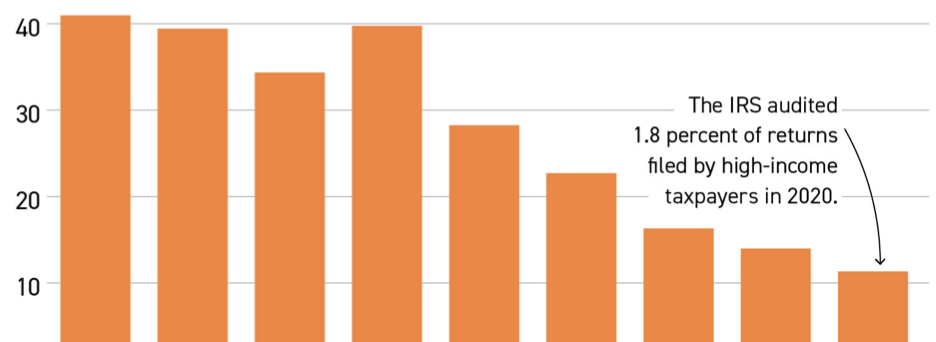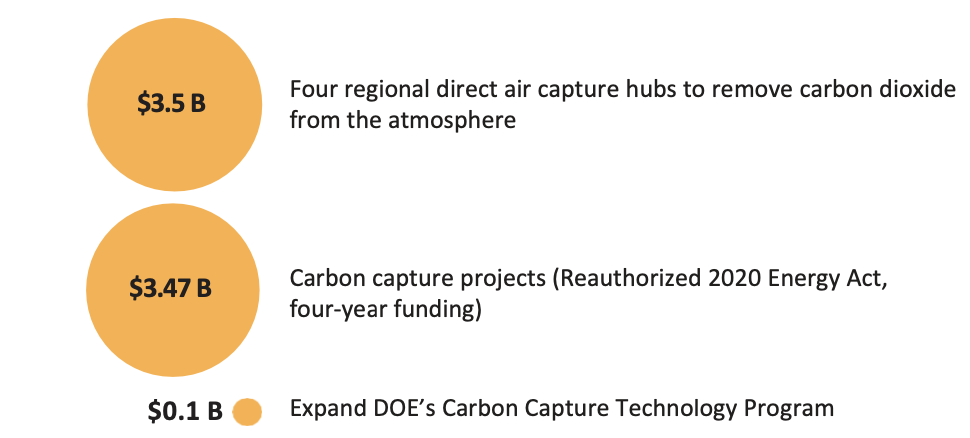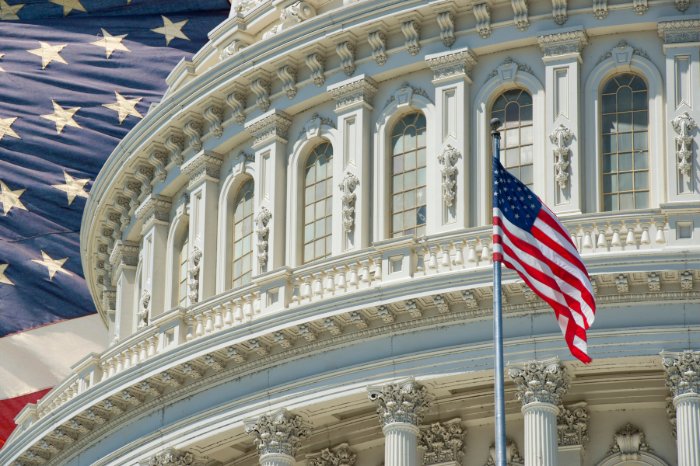Latest news from Washington, D.C. produced by Total Spectrum/SGA exclusively for members of the Arizona Chamber of Commerce & Industry
More Info: Michael DiMaria | Partner and Vice President of Business Development | 602-717-3891 | [email protected]

Thanks for your interest in Washington, D.C., and thanks for reading This Week in Washington.
There are late-breaking developments in Democrats’ attempt to fund and pass the Build Back Better social infrastructure proposal, and in a major potential political upset that could have national significance.
Moderate and progressive Democrats in Congress have been quarreling over the size and scope of the Build Back Better social infrastructure bill and how to move the Bipartisan Infrastructure Bill that Senator Kyrsten Sinema (D-AZ) spearheaded in the Senate. Paul Begala, former counselor to President Bill Clinton and a former Democratic political consultant, remarked about the infighting this morning: “God made family fights so that people will not have to fight with absolute strangers.”
Democratic leaders and the Administration worked this week to reduce the size of the Build Back Better bill from $3.5 trillion down to about $1.7 trillion. President Biden delayed his trip to the G-20 meeting in Rome so he could go to Capitol Hill Thursday morning and personally ask his Democratic colleagues for their support.
I’ve linked here a section-by-section summary of the most recent compromise draft of the Build Back Better plan. Senators Sinema and Joe Manchin (D-WV) praised the draft but have not yet endorsed it. Senator Bernie Sanders (I-VT) is not pleased because much of his agenda got left on the cutting room floor. Overnight, the House Congressional Progressive Caucus responded to the President’s appeal by endorsing in principle the outline of the draft – pending a review of the legislative language – but demanded that the Bipartisan Infrastructure Bill and the Build Back Better plan be passed in tandem.
The President didn’t get his agenda into the end zone, but he is surely close.
We will analyze the draft legislation and prepare some thoughts for the next This Week. Here are three quick observations:
- A major portion of the funds – $555 billion – will go to support climate action initiatives. These include tax credits that will speed up the implementation of clean power, electric vehicles, and energy standards for buildings.
- Democrats insured that programs for pre-kindergarten and child care were protected from cuts, and support for these programs seemed to grow in size through the deliberations.
- The Administration and Democratic Congressional Leaders claim that the bill will be fully paid for. The Joint Committee on Taxation and the Congressional Budget Office have presented preliminary tables that show a gap between the cost of the draft program and the anticipated revenue from taxes. A good bet is to expect adjustments to the millionaire’s surtax to make up the shortfall.
The outcome of the Virginia gubernatorial election this coming Tuesday will be watched by politicians on both sides of the aisle and every political consultant in the nation. Former Democratic Governor Terry McAuliffe is running for a second term and is opposed by Republican businessman and first-time candidate Glenn Youngkin. Virginia used to be a solid conservative state, but the continued growth of Northern Virginia as a Washington, D.C. suburb has changed a bright red Virginia into at least a purple state. Former Governor McAuliffe has the advantage of name identification, but Mr. Youngkin has the momentum. Public polls I’ve seen show the race as a dead heat. For example, the Washington Post-Schar School Poll conducted October 20 through October 26 shows McAuliffe leading Youngkin by one point – 49% to 48%, but their poll showed that Youngkin had a 18% lead among independents. Fox News released a poll yesterday that showed Youngkin ahead 53% to 45%.
A win for Glenn Youngkin Tuesday night would create shockwaves throughout the national Democratic party and would create a massive amount of momentum for Republicans as they head into the 2022 elections.
In this edition of This Week, Patrick Robertson’s Washington Whispers continues his excellent coverage of activity on the social infrastructure bill Democrats want to pass in the Senate using the reconciliation process, the bipartisan infrastructure bill, funding the government for this fiscal year, and the need to raise the debt ceiling. Congressman Erik Paulsen writes about why Senate and House Democrats realized that they had to drop their proposal to control prescription drug pricing. Al Jackson shares his Defense Update, and Ramona Lessen provides summaries of two Congressional hearings – one on security issues in Afghanistan and central/south Asia, and a second focused on cyberattacks on planes, trains, and pipelines.
We’ll be back in two weeks with the next issue of This Week. Stay well.

Total Spectrum Managing Director
Washington Whispers
By Patrick Robertson, Total Spectrum Strategic Consultant
At the beginning of the week, it appeared Washington was on the brink of another major spending deal, which seems to be the refrain of Washington Whispers each and every month. The October version of a potential deal included a scaled-back reconciliation bill and a House vote on the bipartisan infrastructure agreement.
However, on Thursday night, after a frenzied effort to seal a deal the White House pitched to Democrats, the House instead passed an extension of transportation programs until December 3 to match the expiration of government spending. This will also match with the federal government reaching its borrowing limit.
Since our last Washington Whispers, President Biden has been in almost daily negotiations with Senator Joe Manchin (D-WV), Senator Kyrsten Sinema (D-AZ), and Congressional Democrats about what they can accept in a reconciliation package. Senators Manchin and Sinema said they could not support the $3.2 trillion package crafted by the House, and Senator Manchin drew a line in the sand at $1.5 trillion. In the meantime, Senator Sinema said she did not support an increase in the corporate tax rate or increased taxes on individuals, which were both included in the House package.
On climate and green energy provisions, Senator Sinema made new climate programs a priority, while Senator Manchin wanted to protect current fuel sources in the energy mix.
Putting all of these demands together became a very sticky negotiation, led by the White House with input from Senate Majority Leader Chuck Schumer (D-NY), House Speaker Nancy Pelosi (D-CA), House progressives, House moderates, and the many Committee chairs in the House and Senate. While negotiations have continued since the short-term transportation funding bill was passed on September 30, they reached a fever pace this week as President Biden told Capitol Hill Democrats that he needed a deal by the end of the week. The short-term transportation funding was set to expire on Sunday and the President headed to Europe Thursday afternoon.
Over the weekend, Senator Manchin went to Delaware to have breakfast with President Biden and Leader Schumer at President Biden’s personal residence. While that did not produce a deal, it did lead to reports of great optimism. This meeting followed news reports last week that Senator Manchin had laid out a plan for leaving the Democratic party, something that seemed more like a leak to prove a negative than a leak that showed he would ultimately become a Republican. In my two decades of knowing Senator Manchin, nothing suggests to me he will not be a Democrat on the national stage, even if he is the most conservative Democrat by a mile.
Press reports suggest the final deal will be somewhere between $1.5 trillion and $2 trillion in total spending in the reconciliation package. Some issues, like two free years of community college and expanded health benefits, appear to be in trouble while items like early childhood funding and elder care seem to be in better shape. On the tax side, Democrats are strongly considering a billionaire’s tax on annual appreciation of stocks and significant changes to the international tax regime.
Over the course of the negotiations this week, Democrats released a new version of the Build Back Better package that would check in around $1.75 trillion. In the hopes that moderates and progressives would come together, President Biden made a last-ditch trip to Capitol Hill to unveil the agreement and try to get the votes necessary in the House and Senate. As Thursday wore on it became clear the agreement did not satisfy everyone and as a result, the week in Washington ended like it started, without a bipartisan infrastructure deal, without a reconciliation deal, and without a clear path forward.
Either way, Congress faces another series of cliffs in December that will be as tough, if not tougher, to navigate. Government funding runs out the first week of December, after Congress passed a continuing resolution (CR) funding the government after October 1. A CR simply continues the funding from the previous year and has become the default action for Congress to avoid a government shutdown. The options for early December are not much better. Some observers use the Washington-insider term of CR-Omnibus to describe a plan to fund some agencies for the year while giving others another CR. At this point this seems to be the most optimistic possibility while a CR for the full government is still likely.
Once Congress deals with funding the government, it must turn its attention to addressing the debt ceiling. In early October, Congress extended the deadline, but some reports show that the Treasury Department has already exhausted this extension and has started using extraordinary measures (which frankly seem pretty ordinary at this point since they are used almost every year) to make the debt limit last longer. This is an issue that Congress will have to deal with by the end of January, if not sooner. Senate Republican Leader Mitch McConnell (R-KY) has said the Democrats will be on their own to raise the debt ceiling at the end of the year. Republicans will not vote for an increase or suspension in a Democratic-controlled government.
Why Democrats Must Drop Their Proposed Drug Price Controls
By Congressman Erik Paulsen, Total Spectrum Strategic Consultant
The future of the Democrats’ $3.5 trillion spending bill could come down to an intra-party showdown on a single issue: drug pricing.
On September 15, the House Energy & Commerce Committee, deferring to moderate Democrats, rejected a plan to let the government interfere in the price of drugs purchased through Medicare. Later that day, in an exercise of progressive political muscle, the House Ways and Means Committee approved a nearly identical measure.
Some on the progressive side are portraying the Democratic moderate as callous toward patients who need relief from high prescription costs. The criticism is misplaced. This proposal would save Americans little at the pharmacy counter. It would, however, hugely damage the American system of drug innovation, depriving patients of breakthrough cures and vaccines for years to come.
At the center of this controversy is a collection of prescription drug reforms that would authorize the Secretary of Health and Human Services to negotiate with drug makers on the price of medications purchased by the government through Medicare.
In this context, however, “negotiate” is a misleading word at best. The proposed reform would create a system of prescription drug price controls under which the government would cap the tab for hundreds of brand-name drugs. Medicare would pay no more than 120 percent of the average of the prices paid in six other developed countries.
Pharmaceutical firms that refused to sell their wares at this artificially low rate would be subject to a massive tax penalty, equivalent to 95 cents for every dollar of sales. What’s more, the bill would make these lower prices available to private insurers as well.
The attempt to shoehorn this major policy change into the budget bill has met with fierce opposition from moderates in the House, as well as Democratic Senators Kyrsten Sinema (D-AZ) and Joe Manchin (D-WV).
Some might wonder why these holdouts are standing in the way of reforms that force pharmaceutical companies to cut prices. After all, roughly 80 percent of the country believes that drug prices are too high, and one in four Americans struggles to afford their medications.
The reason is that the proposed tax on innovation would not address the financial challenges facing patients. Instead, it would free up money to help fund other spending priorities having nothing to do with healthcare.
According to an estimate from the Congressional Budget Office, these policies would reduce Medicare’s payments to drug makers by $456 billion over the next decade. That’s the problem the holdout Democrats understand. This is no time to handcuff an industry in the business of inventing life-saving medical technologies — including the vaccines that are saving the world from the Covid-19 pandemic.
Our current system has been a boon for investment in new cures and treatments. In 2019 alone, before the pandemic surge, America’s drug industry spent $83 billion on research and development. That’s ten times more than during the 1980s, even after adjusting for inflation.
The $456 billion revenue cut from Medicare price controls doesn’t include the additional scores of billions per year drug makers will lose as health insurance companies piggy-back on them. Industry investment in new cures and treatments will collapse for want of these funds.
On top of that, outside investors will flee the pharmaceutical sector in droves as government price controls eliminate the possibility of making a return. Start-up funding for biotech firms that believe they are on to the next big cure will evaporate, their ideas languishing in unfunded labs. The resulting loss in innovation will be catastrophic for patients.
According to a recent analysis by University of Chicago economist Tomas Philipson, this drug-pricing proposal would reduce the number of new medicines released in the next two decades by as many as 342.
That’s why it’s to the credit of moderate Democrats in the House and Senate that they are uniting against these policies. Drug price controls may save the government and the insurance industry money in the short-term. But jamming these destructive policies in a massive budget bill would come at an immense cost to current and future generations of American patients.
Erik Paulsen is a Strategic Consultant to Total Spectrum and represented Minnesota’s 3rd congressional district in the U.S. House of Representatives from 2009 to 2019. This article was originally published in Real Clear Health on October 21, 2021.
Defense Update
By Al Jackson, Total Spectrum Strategic Consultant
As reported last month, Congress averted a government shutdown through passage of an emergency extension called a continuing resolution (CR). The government has operated under a CR every fiscal year since 2010 except for 2019; they’ve ranged from 76 to 216 days long. The current CR expires on December 3, 2021. While Fiscal Year (FY) 2021 funding levels will continue without interruption, no new start programs (including major procurements) can begin until Congress finishes its work on appropriations for FY 2022.
As a result, billions of dollars in planned DoD acquisition programs, production increases, and top priorities to deter China have been put on hold. In this year’s budget, the Pentagon allocated an additional $5.5 billion for the development and testing of cutting-edge technologies designed to curb the China threat. Navy officials indicate the CR freezes $8 billion for new equipment spending, $2.5 billion in operations and maintenance activities, and approximately $2 billion for personnel.
Funding delays incurred by the Air Force would impact 16 new-start procurements, which comprise $2.3 billion of its FY 2022 budget request. Among the efforts on hold would be a $300 million initiative to develop new hypersonic weapons, as well as production increases for the F-15′s Eagle Passive Active Warning Survivability System, and the Small Diameter Bomb II.
As an Air Force spokesman highlighted, “CRs immediately disrupt major exercises and training events, impede readiness, delay maintenance, impose uncertainty on the workforce, curtail hiring and recruitment actions, and induce inefficient and constrained contracting practices. CRs delay the implementation of new technology development in support of national security priorities.” The new Space Force’s plan for immediate growth is stalled as it relates to the planned transfer of hundreds of Army and Navy billets, as well as certain satellite communications capabilities, mission responsibilities, and related funding to the new service.
Of particular importance to both Arizona, the continuing desire of the Air Force to retire aging fleets of aircraft remains at the forefront, as top leadership remain focused on influencing Congresses’ funding process. Over the last decade, the Air Force has tried and tried again to retire aging fleets to reinvest the money with little success because of the political pressure faced by Members of Congress to keep jobs in their states/districts.
At last month’s Air Force Association conference, USAF Secretary Frank Kendall indicated that a renewed push is coming to shut down older fleets. General Arnold Bunch, Commander of the Air Force Materiel Command, lays out the service’s rationale as it gears up for the upcoming political fight. The A-10 “Warthog” is at the heart of this debate, as these 30-plus-year-old aircraft are incredibly expensive to maintain, as the scope of the challenge stems from chronic parts shortages to the emergence of new and unforeseen safety concerns.
General Bunch highlighted the Air Force’s need to pivot towards the new challenge posed by both Russia and China, as there is a strong need to modernize the force or risk irrelevance. As he stated it, “Accelerate change or lose.” He indicated many of the companies that made these airplanes are either no longer in business or no longer make the spare parts for them. “For example, one engine common to many older Air Force aircraft currently has approximately 1,000 components that require a “cold start” — an expensive and time-consuming process where Air Force sustainment experts find a qualified manufacturer who must learn how to remake parts, the blueprints of which may or may not still exist. To make matters worse, the list keeps growing as the engine ages and the industrial supply chain diminishes. It literally adds months or years to the repair process and has driven our maintenance costs to unsustainable levels.”
Maintenance costs are crowding out opportunities to invest in the modern technology needed to meet future threats from China and Russia, both of which have spent the past 20 years investing in the newest military technologies. This is even as the Air Force embraces several best practices in our repair depot operations, of which 11 “legacy” aircraft have experienced significant growth in repair times since 2016. Four of the legacy platforms — the C-5, C-130, T-38, and A-10 – account for 80% of that growth. The C-130 alone has increased depot refurbishment workloads in never-before-seen areas of repair. They now require an average of 120 days beyond expected refurbishment timelines, delaying the aircraft’s availability for important missions.
Flying these older aircraft well beyond their designed service life comes at increased costs, due to increased repair rates, requirements for repairs never experienced, and increased numbers of aircraft parts that are unfixable or have no source for repair or manufacturing. This trend will likely continue until new aircraft are fielded to replace these systems. To solve this problem, there is a need to be able to retire older fleets, as the growing cost of sustainment will negatively impact both the readiness of our older aircraft and the capability to counter future threats. For FY 2022, the USAF has again proposed divesting some of our oldest fighters, tankers, transport, and surveillance aircraft. The proposal would save approximately $1.4 billion to make way for investments the Air Force needs to maintain, and in some cases regain, the advantage. It remains to be seen how Congress will respond to increased lobbying by the military to retire legacy aircraft systems considering re-election efforts of one current member of the U.S. Senate in Arizona.
An additional concern surfaced earlier this month as several defense contractors announced strong financial earnings as they recover from the negative impact of Covid-19. The growth projections were positive and supported by a potential increase in the defense budget. Unfortunately, major programs are still over budget and underperforming. In fact, those government programs are now $628 billion in the red, according to a new Government Accountability Office (GAO) report that found this massive increase was due entirely to failures or other issues with the equipment or contract. That $628 billion number comprises a huge portion – 88% – of the entire operating budget for the Pentagon in FY 2020.
The GAO study also found that 11 programs in 13 years were more expensive than planned or behind schedule. Additionally, the time required to deliver initial capabilities has increased by 30%.
Hearing Report
By Ramona Lessen, Executive Director, Total Spectrum
Senate Armed Services Committee hearing to Examine Security in Afghanistan and South and Central Asia
Tuesday, October 26, 2021; 9:30 a.m.
To view a livestream of the hearing please click here.
Member Statements:
Senator Jack Reed (D-RI), Chairman
Senator Jim Inhofe (R-OK), Ranking Member
Witnesses:
Honorable Colin Kahl
Under Secretary of Defense for Policy
Lieutenant General James Mingus
Director for Operations, J3 Joint Staff
House Homeland Security Subcommittee on Cybersecurity, Infrastructure Protection, and Innovation and Subcommittee on Transportation and Maritime Security
Topic: Protecting Planes, Trains, and Pipelines from Cyber Threats
Tuesday, October 26, 2021; 2:00 PM
To view a livestream of the hearing please click here.
Member Statements:
Representative Yvette D. Clarke (D-NY), Subcommittee Chair
Representative Bonnie Watson Coleman (D-NJ), Subcommittee Chair
Representative Bennie Thompson (D-MS), Committee Chairman
Representative Andrew Garbarino (R-NY), Subcommittee Ranking Member
Representative Carlos Gimenez (R-FL), Subcommittee Ranking Member
Witnesses:
Hon. Suzanne Spaulding
Senior Adviser
Homeland Security International Security Program
Center for Strategic and International Studies, Former Under Secretary, National Protection and Programs Directorate
Ms. Patricia F.S. Cogswell
Strategic Advisor
Guidehouse
Former Deputy Administrator, Transportation Security Administration
Mr. Jeffrey L. Troy
President & CEO
Aviation Information Sharing and Analysis Center
Former Deputy Assistant Director, Cyber Division, Federal Bureau of Investigation
Mr. Scott Dickerson
Executive Director
Maritime Transportation System Information Sharing and Analysis Center
Congressional Hearing and Mark-up Calendar
All times ET
Tuesday, October 26
- 9:30 a.m. Senate Armed Services Committee hearing to examine security in Afghanistan and South and Central Asia.
- 9:30 a.m. Senate Finance Committee hearing to examine the nominations of Maria Pagan to be a deputy United States trade representative, Brent Neiman to be a deputy Treasury undersecretary, Joshua Frost to be an assistant Treasury secretary and Samuel Bagenstos to be HHS general counsel.
- 10 a.m. House Agriculture Biotechnology, Horticulture and Research, Livestock and Foreign Agriculture Subcommittees hearing on advancements and applications of agricultural biotechnology.
- 10 a.m. House Financial Services Committee hearing on risks associated with foreign issuers operating in U.S. markets with a focus on China.
- 10 a.m. House Natural Resources Water, Oceans and Wildlife Subcommittee virtual hearing on human rights in international conservation.
- 10 a.m. House Transportation and Infrastructure Economic Development, Public Buildings and Emergency Management Subcommittee hearing on FEMA’s assistance programs for communities affected by wildfires.
- 10 a.m. House Veterans Affairs Economic Opportunity Subcommittee virtual hearing on support for servicewomen.
- 10 a.m. Senate Banking Committee hearing to examine the nominations of Reta Jo Lewis to be president of the Export-Import Bank of the United States and Elizabeth de Leon Bhargava to be an assistant secretary of Housing and Urban Development.
- 10 a.m. Senate Commerce Consumer Protections, Product Safety and Data Security Subcommittee hearing to examine protections for children on Snapchat, TikTok and YouTube.
- 10 a.m. Senate Foreign Relations Committee virtual hearing to examine the nominations of Marc Stanley to be ambassador to Argentina; Rashad Hussain to be Ambassador at large for international religious freedom; Chantale Yokmin Wong to be United States director of the Asian Development Bank; Adriana Debora Kugler to be United States executive director of the International Bank for Reconstruction and Development; and other pending nominations.
- 10 a.m. House Homeland Security Committee markup of pending legislation, including H.R. 5658 (117), the DHS Roles and Responsibilities in Cyber Space Act.
- 10 a.m. Senate Health, Education, Labor and Pensions Committee business meetingto consider the nominations of Michael Smith to be CEO of the Corporation for National and Community Service; Jose Javier Rodriguez to be an assistant Labor secretary; Larry Turner to be inspector general at the Department of Labor; Sandra Bruce to be inspector general at the Department of Education; Amy Loyd to be an assistant Education secretary; and Deirdre Hamilton, Gerald Fauth and Linda Puchala each to be member of the National Mediation Board.
- 10:15 a.m. House Education and Labor Workforce Protections Subcommittee virtual hearing on employee vaccine requirements and accommodations.
- 10:30 a.m. House Energy and Commerce Health Subcommittee hearing on patient caregivers and health care providers.
- Noon. House Natural Resources Indigenous Peoples Subcommittee hearing on strengthening indigenous communities through cultural and environmental preservation.
- 2 p.m. House Appropriations Defense Subcommittee virtual hearing on workforce development at the Department of Defense.
- 2 p.m. House Homeland Security Cybersecurity, Infrastructure Protection and Innovation Subcommittee virtual hearing on transportation cybersecurity.
- 2 p.m. House Judiciary Courts, Intellectual Property and the Internet Subcommittee hearing on judicial ethics and the limits of existing statutes. 2141 Rayburn.
- 2 p.m. House Veterans’ Affairs Technology Modernization Subcommittee virtual hearing on VA electronic health record modernization efforts.
- 2:30 p.m. Senate Rules Committee hearing on threats to administering elections.
Wednesday, October 27
- 10 a.m. House Appropriations State and Foreign Operations Subcommittee virtual hearing on the global COVID-19 response.
- 10 a.m. House Financial Services Committee hearing on the Consumer Financial Protection Bureau.
- 10 a.m. House Homeland Security Committee hearing on equity in disaster preparedness.
- 10 a.m. House Natural Resources National Parks, Forestry and Public Lands Subcommittee hearing on wildfire firefighter workforce reforms.
- 10 a.m. House Small Business Economic Growth, Tax and Capital Access Subcommittee hearing to review the Small Business Investment Company program.
- 10 a.m. House Veterans Affairs Health Subcommittee virtual hearing on VA patient safety.
- 10 a.m. Senate Agriculture Committee hearingto examine the nominations of Rostin Behnam to be chair of the Commodity Futures Trading Commission. 216 Hart.
- House Transportation and Infrastructure Committee Markup.
- 10 a.m. Senate Judiciary Committee oversight hearing to examine the Department of Justice.
- 10 a.m. House Judiciary Committee markup of pending legislation, including H.R. 4777 (117), the Nondebtor Release Prohibition Act of 2021
- 10 a.m. Senate Foreign Relations Committee hearing on the State Department.
- 10 a.m. Senate Environment and Public Works Committee business meeting to consider the nominations of Carlton Waterhouse, Amanda Howe and David Uhlmann to be assistant administrators at the Environmental Protection Agency. This will be immediately followed by a hearing to examine the nominations of Henry Christopher Frey to be another EPA assistant administrator; Jennifer Clyburn Reed to be federal co-chair of the Southeast Crescent Regional Commission; and Ben Wagner to be inspector general of the Tennessee Valley Authority.
- 10:15 a.m. House Education and Labor Higher Education and Workforce Investment Subcommittee virtual hearing on policies and priorities at the Office of Federal Student Aid.
- 10:30 a.m. House Energy and Commerce Environment and Climate Change Subcommittee hearing on fulfilling commitments related to the Lautenberg Act.
- 1 p.m. House Natural Resources Energy and Mineral Resources Subcommittee hearing on the federal coal program.
- 2 p.m. Select Coronavirus Crisis Subcommittee hearing on the meatpacking industry.
- 2:30 p.m. Joint Economic Committee hearing to discuss the labor market.
- ·2:30 p.m. Senate Foreign Relations Europe and Regional Security Cooperation Subcommittee hearing to examine security and U.S. policy in the Black Sea region.
- ·2:30 p.m. Senate Homeland Security Government Operations and Border Management Subcommittee virtual hearing on strategies for improving critical energy infrastructure.
- 2:30 p.m. Senate Indian Affairs Committee business meeting to consider H.R. 1688 (117), the Native American Child Protection Act, and examine voting in Native American communities.
- 2:30 p.m. Senate Small Business Committee hearing to discuss women entrepreneurs.
- 3 p.m. Senate Veterans’ Affairs Committee hearing on improving veterans employment, education and home loans opportunities.
Thursday, October 28
- 9 a.m. Senate Judiciary Committee business meetingto consider pending nominees and legislation, including S. 998 (117), which would provide grants to states that do not suspend, revoke, or refuse to renew a driver’s license of a person or refuse to renew their registration of a motor vehicle due to failure to pay a civil or criminal fine or fee.
- 9 a.m. House Oversight Committee hearing on big oil companies and climate change. ExxonMobil CEO Darren Woods, BP America CEO David Lawler, Chevron CEO Michael Wirth, Shell Oil CEO Gretchen Watkins and U.S. Chamber of Commerce President Mike Sommers participate, among others.
- Senate Armed Services Committee nomination hearing – John Sherman to be Chief Information Officer of Department of Defense and Ashish Vazirani to be Deputy Under Secretary of Defense for Personnel and Readiness.
- 9:30 a.m. Senate Aging Committee hearing on building a stronger retirement system.
- 10:00 a.m. Senate Banking Committee hearing – New Era for Consumer Protection: The Consumer Financial Protection Bureau’s Semi-Annual Report to Congress.
- 10:15 a.m. Senate Homeland Security Committee hearing to examine domestic extremism on social media platforms.
- 10:30 a.m. Select Climate Crisis Subcommittee hearing on international climate challenges and opportunities.
Friday, October 29
- House Veterans Affairs Subcommittee on Economic Opportunities hearing: Ensuring a Successful Military to Civilian Transition for Servicemen in Southern Alabama.
What you need to know about The Tax Gap

Port backlog worsens as shipping prices soar

What you need to know about The Gas Tax

What you need to know about Biden’s plan for early childhood education

Despite growth of renewables, world energy demand is forecast to drive increased consumption of fossil fuels

Infrastructure bill would boost funding for carbon capture projects

11M Americans have received a booster shot

















Add comment